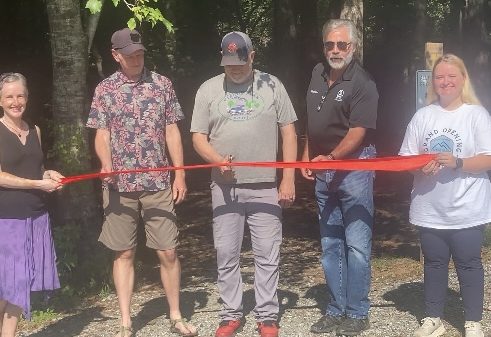Patrolman Anthony killed while transporting prisoners
Published 10:00 pm Tuesday, February 9, 2016
Two incidents of deputies being killed during the transport of prisoners have been covered in previous tales. A South Carolina Highway Patrolman, Fulton H. Anthony, was killed on March 10, 1973, by a Dark Corner prisoner who was in the back seat of a patrol vehicle that was transporting him and his wife to the Greenville County jail.
Highway Patrolman R.E. Wallace was on routine patrol on SC 276 near River Falls about 4 p.m. in the afternoon, when he stopped to investigate a 1963 Ford station wagon in the right hand ditch.
The occupants, Clyde Edmond Ogle and his wife, Virginia Dare Ogle, of the local Cleveland section were intoxicated. Officer Wallace arrested them for public drunkenness and “brown bagging” (carrying an open container in a paper bag) and decided to take them to the jail in Greenville.
He made a cursory search of Ogle but did not search his wife. This was in accordance with a policy that required that only females search females. The wife was not searched “beyond observation,” according to the patrolman’s write-up of the arrest.
He did not handcuff either Ogle or his wife as he put them in the back seat of his patrol car, and called his dispatcher to request that a backup officer meet him to help transport the two prisoners.
Patrolman Anthony responded to the dispatcher since he was in the general vicinity. He parked his patrol car at the intersection of SC 276 and White Horse Road Extension to await the vehicle driven by patrolman Wallace. He then got into the passenger seat of Wallace’s patrol car while Ogle and his wife remained in the back seat.
As the patrol car reached the Greenville city limits near Stone Manufacturing (present day Cherrydale shopping mall), Ogle removed a snub-nosed .38 caliber revolver he had hidden in his combat-type boot and fired five shots through the seat at Anthony. Four of the shots hit him in the back and one came out his temple.
One of the five shots struck Mrs. Ogle in the upper right arm and patrolman Wallace’s right hand that was raised in an effort to fend off the bullets.
After firing the five shots, Ogle put the five-shot revolver against Wallace’s forehand and pulled the trigger, but the gun was empty. Wallace immediately stopped the vehicle and rolled out, firing back a shot toward Ogle, which struck him in the chest, killing him.
Patrolman Anthony was rushed by ambulance to the old Greenville General Hospital with the bullet wounds to the back. He was pronounced dead on arrival. Unfortunately, his wife, Doris, heard of his death on the radio before she could be notified of the shooting.
Immediately following the shooting, Ogle’s wife was charged with murder in connection with the incident, since investigators first believed the gun used to kill Anthony was possessed by her, since he, and not she, had been searched. It was felt she had given the gun to her husband while both were in the back seat.
Investigators from SLED, the Highway Patrol and the Greenville County Sheriff’s office, however, later determined that the gun had been hidden in Ogle’s boot and was not found by the cursory search by Patrolman Wallace. The murder charge was dropped the following day.
The killing of Clyde Ogle by Patrolman Wallace was ruled a justifiable homicide without an inquest.
The murder of Patrolman Anthony created quite a lengthy discussion over police search policy, and led to a new state law that required police officers to handcuff prisoners being transported in patrol cars. Failure to do so would subject the officer to a fine of $100 and suspension from his duties for 90 days.
The purpose of the new law was to “take off the hook” officers who wanted to “be nice” or who were dealing with influential or prominent people.
The Highway Patrol and other police agencies also adopted a policy that required one officer to ride in the back seat with handcuffed prisoners and not in the front passenger seat as was the case in the incident that led to the murder of Anthony.





